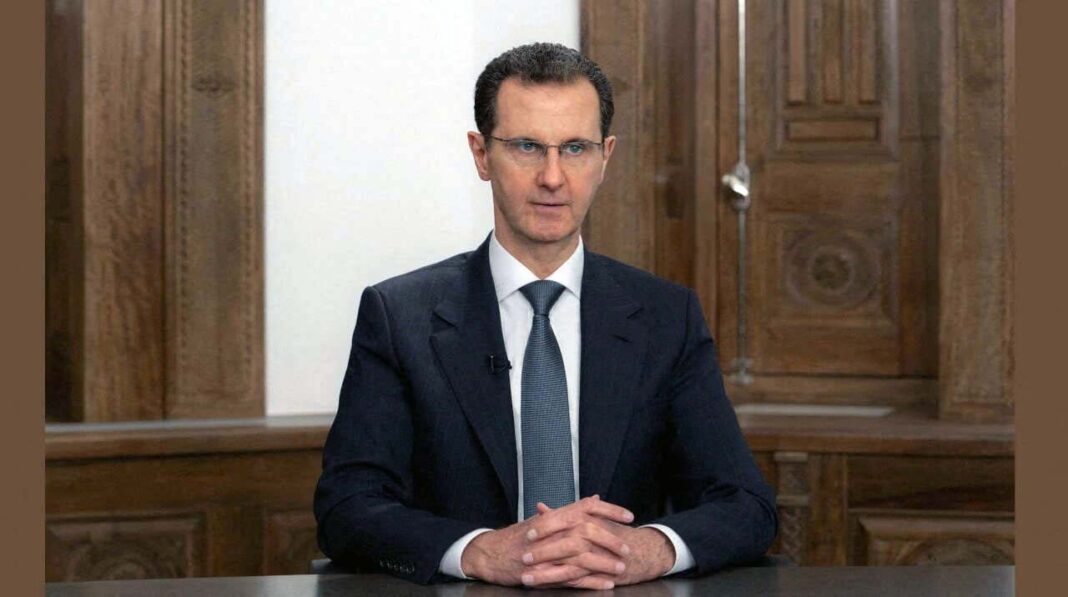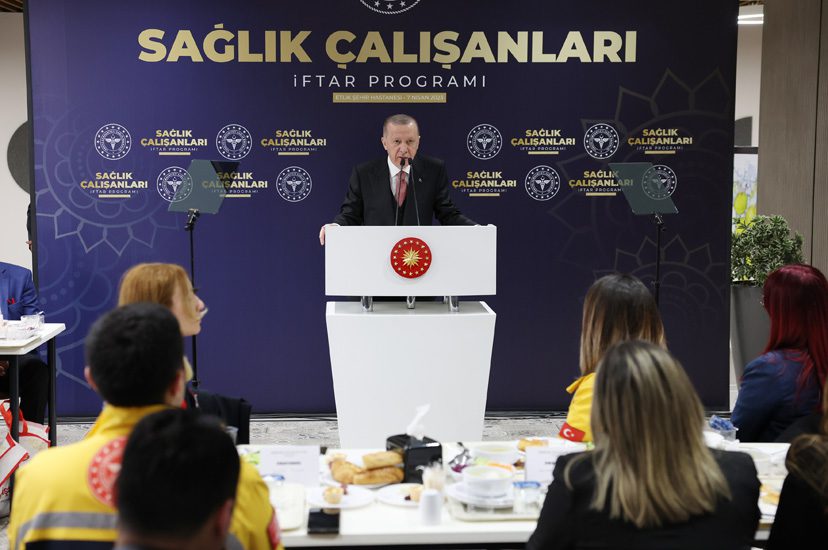All eyes are on how the outcome of next month’s crucial elections in Turkey could reshape the regional order, writes Salah Nasrawi at Ahramonline.
Turks will vote next month in presidential and legislative elections that could mark a crucial moment for the country’s troubled national politics and its aspiring regional clout.
The twin elections slated for 14 May could determine the fate of President Recep Tayyip Erdogan and his Justice and Development Party (AKP) which has been in power for more than two decades.
Erdogan and his party are facing a stiff challenge from six opposition parties that have joined forces for presidential and parliamentary posts amid mounting discontent with the country’s political stalemate, its economic management, and the response to the destructive earthquakes in the region in February that left 50,000 people dead.
Each of Turkey’s neighbours has a stake in the result of the elections, with each hoping that they will bring in a new era of less problematic and more predictable Turkish regional policies.
Since Erdogan came to power in 2003, initially as prime minister and then as president since 2014, Turkey has become a more active player in the regional arena, intervening decisively in a series of crises.
The country’s involvement in various regional conflicts and Erdogan’s abrasive manner have increased antipathy to it in many parts of the Middle East as well as the opposition’s disenchantment.
Foreign policy issues, such as Ankara’s outlook on the West and its neighbourhood relationships, are expected to bear significantly on the outcome of the elections, with the opposition hoping that they will pivot Turkish foreign policy to be more domestically driven.
Turkey’s opposition headed by Kemal Kılıçdaroglu, leader of Republican People’s Party (CHP) and the opposition coalition’s presidential candidate, seeks to exploit problems the AKP government faces, especially the economic crisis and its failure to respond to the earthquake appropriately, in order to remove Erdogan from power.
The opposition’s priority is domestic: to reverse both Erdogan’s authoritarian rule and his unorthodox economic policies.
Erdogan’s critics blame him for seeking to shape Turkey’s political system in his own image and trying to build a modern Ottoman Sultanate with him at its helm.
The opposition also accuses Erdogan of adopting economic policies that have driven millions to the brink of financial ruin. Millions of others have been left homeless in the 11 Turkish provinces affected by the February earthquakes.
Under Turkish law, any presidential candidate who can secure more than half the vote is the outright winner. The race goes to a run-off two weeks later if no candidate fails to snatch victory in the first round.
If Erdogan is unseated in the elections, the foreign policy challenges faced by the Turkish opposition would be enormous. His assertive foreign policy was aimed at rebranding Turkey as a regional power and any new leader and his government would need to work out a new foreign policy.
The opposition coalition would also face a suite of challenges on the global and regional stages, from fragile relations with NATO and the European Union to restoring confidence with neighbouring countries.
Though Turkey is a NATO member and has built a close partnership and deepening trade relations with the EU, Erdogan has drawn the ire of his Western allies over the country’s relations with Russia and other issues.
The opposition will have to solve differences with the West over a host of issues including the Russian war in Ukraine and the future of Turkey in the Western alliance.
When it comes to Turkey’s immediate neighbourhood, the most pressing issues will be for the opposition to address the root causes of the country’s troubled relations with its surroundings after years of sharpening geopolitical tensions.
Erdogan’s increasing regional ambitions, including his intervention in several conflicts, his willingness to launch military operations in Iraq, Libya, and Syria, and his pressing of territorial claims in the Mediterranean, have isolated Turkey and cast uncertainty on its ties with its neighbours.
In recent years, Erdogan has sought to remake his foreign policy, including by seeking a rapprochement with major regional powers such as Egypt, Israel, and Saudi Arabia. He is also seeking a reconciliation with the Syrian regime of Bashar Al-Assad as part of his bid to reset neighbourhood ties.
Yet, the gap between Turkey and other countries goes beyond Erdogan’s supposedly friendly gestures. Instead, it is the product of deep mistrust and the frustration of Erdogan’s ambitions to play a leadership role in the region.
Returning to the “zero problems with the neighbours” policy advocated by former Turkish prime minister Ahmet Davutoglu will be critical in restoring confidence in Turkey’s relations with the rest of the region.
With many of Erdogan’s assertive policies leading to the country’s taking sides in the internal political divisions of neighbouring countries, a government led by the opposition will need to attend to a number of related issues, notably ending Turkey’s partisan interventions and its military presence abroad.
Under Erdogan and the AKP, Turkey ramped up its interventions in both Iraq and Syria in order to face alleged threats to its security by Kurdish rebels and their allies in the two countries.
Turkey has expanded its military presence in northern Iraq by building dozens of bases and outposts and conducting routine aerial operations and ground incursions allegedly against the Kurdistan Workers Party (PKK) inside the Iraqi Kurdish enclave.
Another stumbling block in Turkey’s relations with Iraq is the water shortage in the Euphrates-Tigris Basin caused by huge upstream projects that Iraq fears threaten livelihoods downstream.
The scope of the Turkish involvement in Syria has broadened since the 2011 uprising in the country beyond simply addressing Ankara’s worries about the ensuing Civil War. The Turkish intervention, which started politically, later evolved into military assistance for the Syrian opposition forces and morphed into the occupation of large chunks of Syrian territory.
One of the impacts of Erdogan’s policy in Syria is the presence of millions of Syrian refugees in Turkey who are now part of the elections debate. Many Turkish opposition parties that are campaigning on an anti-migrant platform want to send these refugees back home.
In both countries, the conflict reflects the assumptions underpinning the long-standing Kurdish question in Turkey. Turkish strategists fear the Kurds could use the chaos gripping the two countries to establish an independent state in Iraq and Syria that could accelerate the PKK-led secessionist movement in the Kurdish areas in Turkey.
The issue weighs heavily ahead of the elections, especially with some 15 million Kurds in Turkey whose constituencies will have a determining impact on the outcome of the voting.
The country’s electoral map indicates that the outcome may hinge on the Kurds. A recent poll suggested that the People’s Democratic Party (HDP), whose base is mostly Kurdish, is expected to take at least 10 per cent of the vote, which could make it a kingmaker after the elections.
The HDP is fielding its parliamentary candidates under the banner of its sister the Green Left Party in order to sidestep a potential ban at the Turkish Constitutional Court over allegations that it supports the PKK.
The party has not formally joined the six-party coalition backing Kılıçdaroglu for the presidency. Instead, its voters, who will likely play an even a bigger role in the presidential poll, are backing the HDP-Green Left Party contender.
The opposition alliance is thus expected to face a fundamental challenge in addressing Turkish state policy with regard to using the existence of the PKK as a pretext for both the repression of the Kurdish community and its neighbourhood strategy.
Any future opposition-led government in Turkey will also need to reassess the country’s involvement in Libya, where Turkish military personnel and affiliated foreign fighters have been sent to promote Turkish interests in the southern Mediterranean region.
The opposition will need to provide an alternative Turkish strategy in Libya aimed at ending its military involvement in the beleaguered country and reassuring Libya’s neighbours of its peaceful intentions.
Turkey’s sweeping claims of exclusive economic zones in the Eastern Mediterranean have also antagonised competing claimants and increased regional tensions. Many other countries are entangled in a string of disputes in an area that has seen increasing gas discoveries.
The Turkish opposition parties have made it clear that they do not support Erdogan’s one-sided maritime deals, and they are reportedly working out alternative plans to secure Turkey’s interests in the regional gas market.
Turkey is important to the region as much as its neighbours are important to the country’s economic and political well-being and security. Relations between the Turks and Arabs, as well as other Middle Eastern minorities, go back centuries, but views vary on their experience under the Ottoman rule that lasted four centuries.
More recently, Erdogan’s growing regional ambitions have led to strained diplomatic relations, fuelling anti-Turkish sentiments and compelling several Arab nations to adopt a cautious approach to Turkey.
The next government in Turkey needs to tackle these and other challenges in order to craft a more effective way to address the concerns of its neighbours and pave the way for more equitable regional cooperation.





